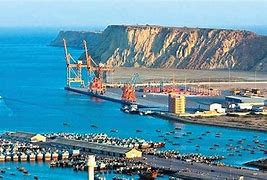The Balochistan Assembly on Monday passed a resolution to form a special committee of the house to look into issues related to China-Pakistan Economic Corridor (CPEC) projects.
Provincial Finance Minister Mir Shoaib presented the resolution during the assembly session for establishing the special committee on CPEC in the assembly, which was adopted by the house with consensus.
Speaking on the occasion, Chief Minister Mir Sarfaraz Bugti said that Balochistan plays an important role in CPEC but effects of CPEC, though visible in other provinces, are not visible in Balochistan.
As the second phase of CPEC is about to start and Balochistan is a part of it, Mr Bugti said, he wants a special committee to be formed about CPEC, through which the federal government could be informed of the province’s concerns.
Mir Asadullah Baloch of Balochistan National Party-Awami said that the people of other provinces were jointly struggling to achieve their rights, but the people of Balochistan were divided.
The Balochistan Assembly adopted another resolution felicitating the nation on May 28th, the day Pakistan became a nuclear power.
Provincial Minister Abdul Rahman Khetran moved the resolution on ‘Yaum-i-Takbeer’, stating that Pakistan became the seventh nuclear power in the world and the first in the Islamic world on May 28, 1998.
He praised efforts of the Pakistan military leadership and scientists, which ensured the country’s regional security, independence and sovereignty through nuclear deterrence. He also praised former prime minister Nawaz Sharif for conducting nuclear explosions.
Minister Haji Ali Madad Jatak stated that the foundation of making Pakistan a nuclear power was laid by PPP leader Zulfikar Ali Bhutto. The house passed the resolution.
The Balochistan Assembly also approved funding for the establishment of a Cadet College in Washuk.
Zabid Reki, a member of the provincial assembly belonging to Jamiat Ulema-i-Islam, presented a proposal for allocating funds for establishing a Cadet College in Washuk.
He said that due to non-availability of top quality education facilities at local level, poor students are deprived of top quality education.
















